“You always get what you want. You just don’t know that it’s what you want.”
Picture a young woman in her childhood bedroom with a microphone close to her mouth and imagine the gurgling, gnawing, and grotesque sounds she may produce. What would become of it?
To Ally Chozik and Jessa Richer, it becomes a musical.
Meet the two people behind the sold-out show When You Close Your Eyes; a sapphic, culty horror-musical coming to Toronto presented by Chozik’s new musical theatre company: Makeshift Company.
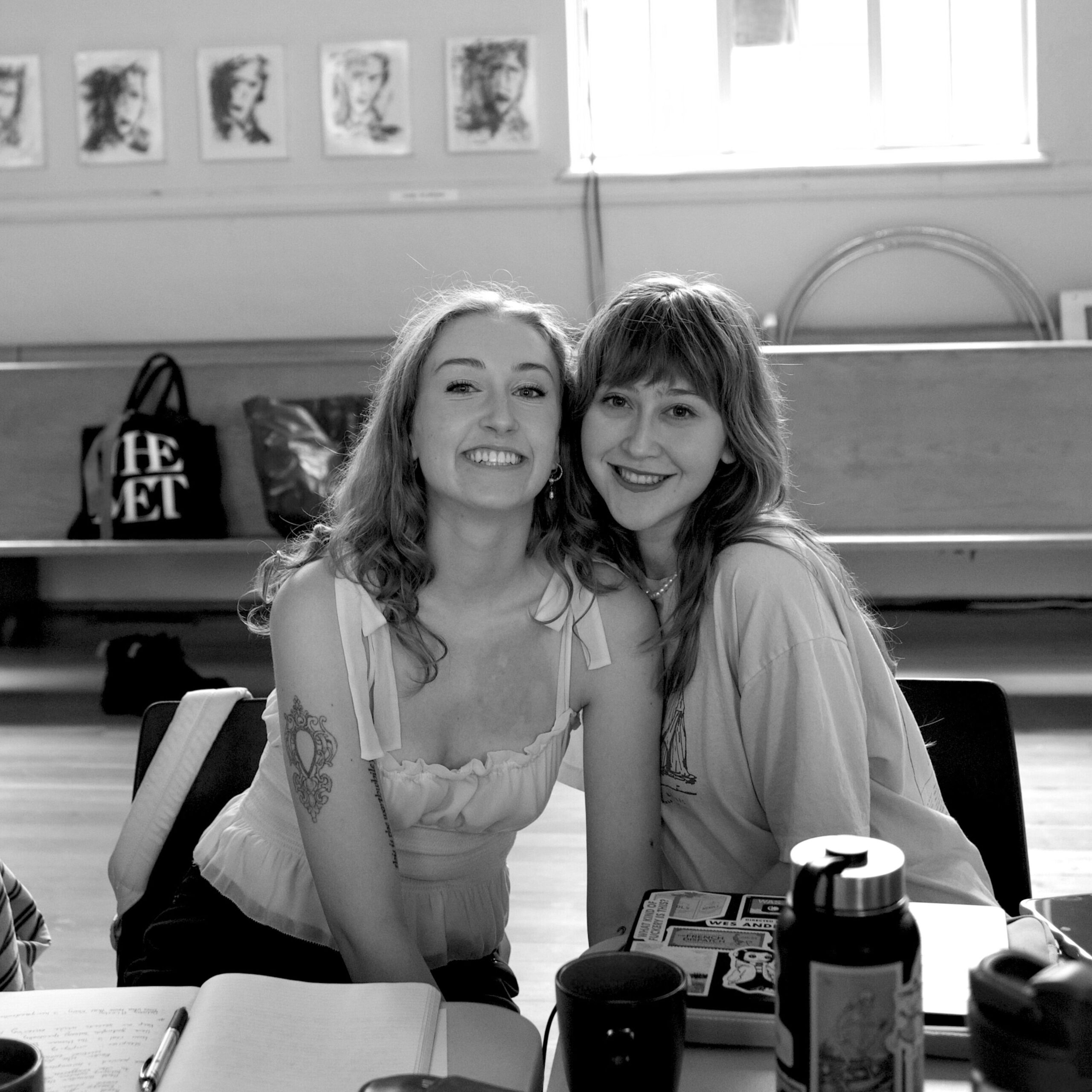
These two took a gamble in creating a horror musical that shifts away from a campy feel. As Richer, the show’s sole writer, points out, “Most musical theatre leans into the camp with horror because that’s what musical theatre is.” When You Close Your Eyes, however, is using music to tell a story. No satire.
In the same vein as children’s writer Anna Fitzpatrick turning around and writing the adult novel Good Girl, this isn’t Richer’s first horror to write. Though it is her first adult horror. Some may recognize her name from The Calling, a children’s horror that she worked on last summer with Shira Bodnar. The feedback she received was that it was sometimes a bit too scary for young children; something Richer had full freedom to lean into this time around.
“If I was accidentally being scary last time, what happens if I try?”
While Richer grew up on horror, Chozik, the dramaturge, loves a good tale of romance. In fact, they tell us that a lot of the action is propelled by the central romance. After all, it is the story of a cult. And what’s a cult if not a power-hungry romance?
A sapphic horror cult is all we knew of this play before the chance to speak to Chozik or Richer. With its sold-out status, the creators haven’t had to give much away in order to sell this musical, allowing anonymity in its premise. This means that Chozik doesn’t have to worry about convincing people to buy tickets anymore when sharing their work. “It’s like this relief,” they say, “where we can actually keep it super secret, which is what we were worried about. How do we sell this without spoiling it? Because we want it to have an impact.” Richer shared that, in the same way she doesn’t like watching trailers to movies, she’s excited to watch the story unfold as it was intended to be told. Chozik chimed in, “clearly it worked without very much promo. I think the secrecy is kind of making people really excited about it.” But what is this play about?
Like many horror stories, one could argue that this is a coming-of-age tale. Think of Ginger Snaps or Valerie and Her Week of Wonders.
Our lead Delaney, played by Julia Schwartz, is stuck in a small town, with an abusive mother for her whole life into early adulthood. Delaney is also stuck in a job with someone she knew from childhood who aids in this feeling of confinement. Then enters Vera, the new girl in town played by Josie Smith, who takes Delaney into a new world: The Middle. For Delaney, The Middle is everything someone could want. When she travels there, she is free to get anything she wants, to live the life she desires.
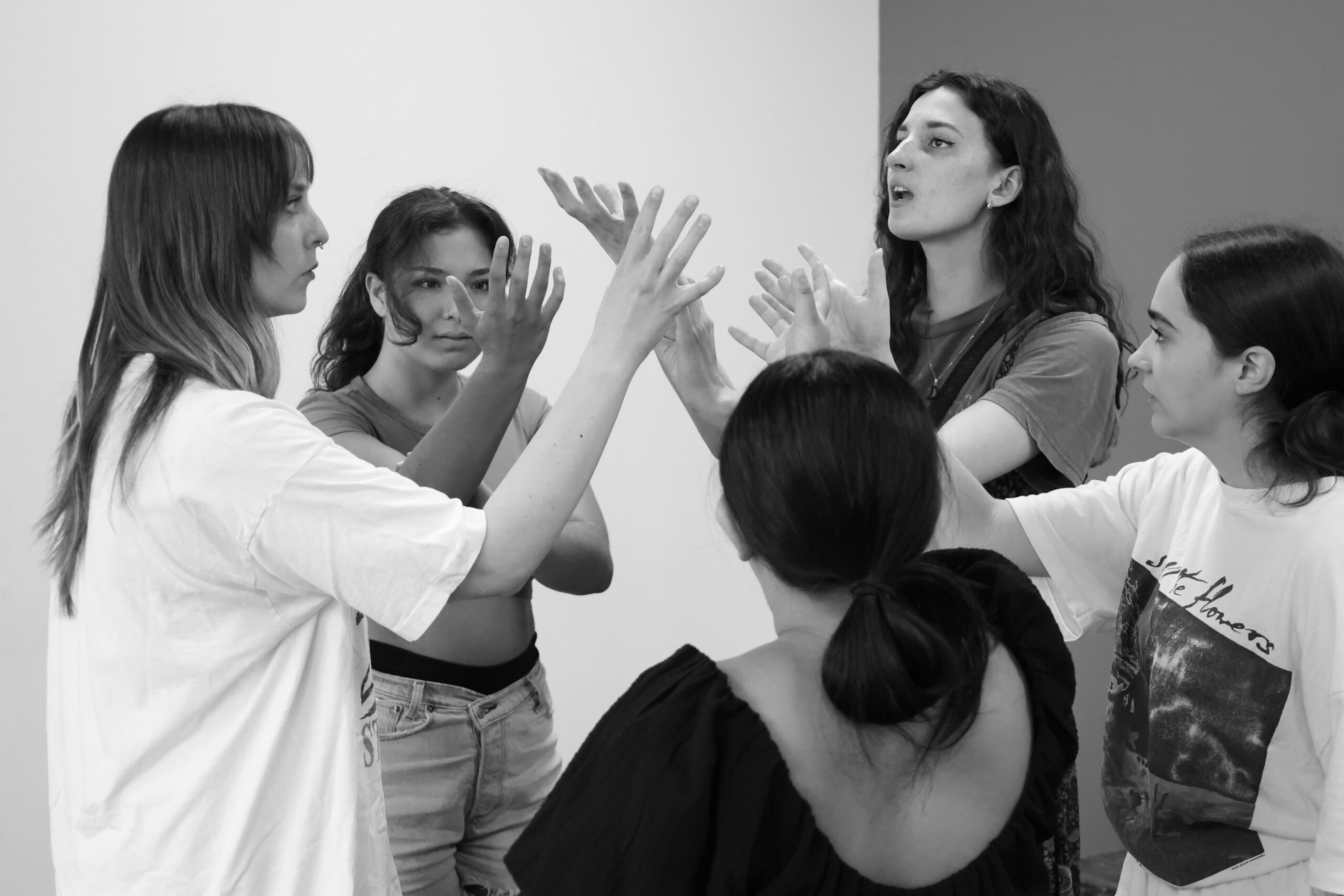
“The Middle gives them whatever they want. Even if it’s not what they think they want.”
As this is a story of sisterhood and queerness, Chozik and Richer were very adamant on having their team reflect that. Besides Jameson Mosher, who plays Will, and their orchestrator, Jason Kokkovas, the cast and team consist of fem, nonbinary, or female members. Richer tells us that “coming as a female writer, it’s nice to have a story about sisterhood and young women, and queerness, that isn’t overly sexualized.” Chozik adds that this translates to an interesting power dynamic between the female characters and their one male counterpart on stage.
“That’s what makes it so nice for all of them. Because, otherwise, they’re so isolated that when they get into this group it just all clicks together.”
This story is a spectrum of femininity and community. As an ensemble piece, the audience will get a glimpse into each woman’s story through generations. Richer says this comes from her love of the “side character.” To her, side characters are always the best because they can have the most interesting and outlandish storylines.
To write a horror musical and make it scary is a hard task. Especially for an original story. But that’s where music can help. Music plays such an important role in horror. Halloween, Jaws, Friday the 13th to name a few, have iconic tracks that follow their respective killers. As a lover of Ari Aster, Richer would listen to the Midsommar and composer Charles Bernstein’s A Nightmare on Elm Street soundtracks when she first began creating this musical.
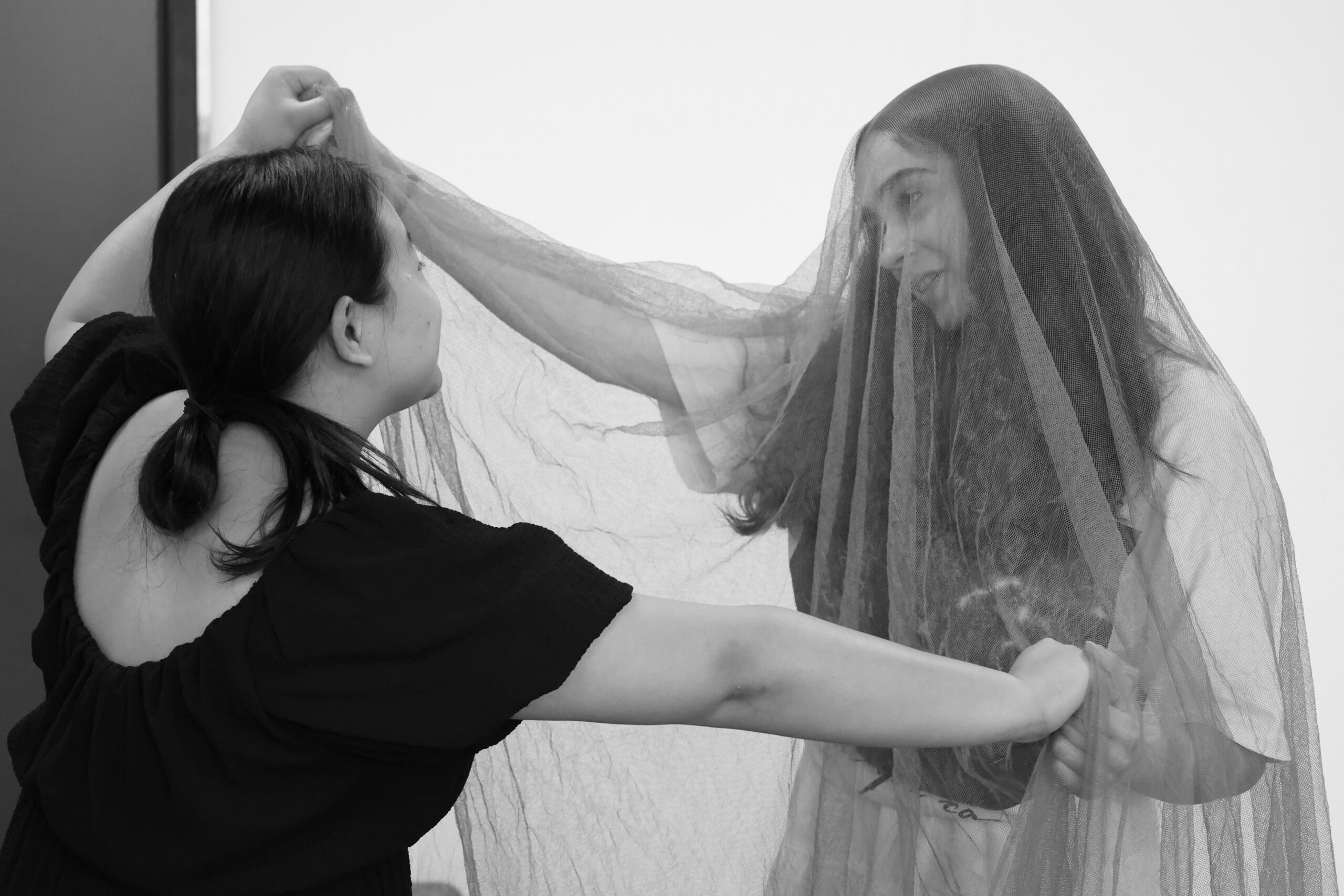
As Chozik states, “When you see a musical, you have to suspend extra disbelief to believe that they’re singing and that that’s their character singing and not just a person singing.” As the director and dramaturge, they are going in with the intention that, because the audience is already suspending their disbelief, “we can go anywhere from there. Like, if they’re singing, they can go to The Middle. They can kill each other. They can fall in love or whatever. We can suspend a lot more disbelief about what’s possible.”
“Cults are inherently musical,” Richer adds, “there’s a lot of chanting which, even if you’re not putting it to pitch, is music.” Chozik tells us that even religion has a fundamentally musical element to it; a structure that cults tend to follow. “The way that music comes in and puts you on edge and the way you could be seeing something so serene and the music is screeching and makes you so uncomfortable,” is something Richer and Chozik were excited about when hearing Richer’s music and lyrics performed for the first time.
Chozik describes how the air in the room changed upon first hearing the ensemble sing together. Both Chozik and Richer come from a musical theatre background so they have been enjoying experimenting combining their love for musical theatre with horror. Two genres that don’t usually blend. Richer describes a freedom with it saying “writing music for something that’s very untapped is that I get to really do whatever I like.” A lot of the music is also based on sounds the body makes like the clicking of teeth or the scratching of nails.
“My favourite part is how much I get to break every writing rule with this.”
Beyond music, space has a lot to do with selling a feeling to the audience. This show is being held in Theatre Passe Muraille, a former bakery and stables turned into two theatre spaces. In the old stables is where When You Close Your Eyes will be played so a lot of the strange music and performance will be happening close to people’s faces, Richer points out with glee.
“I always hope that musical theatre will show someone how much their feelings are important.”
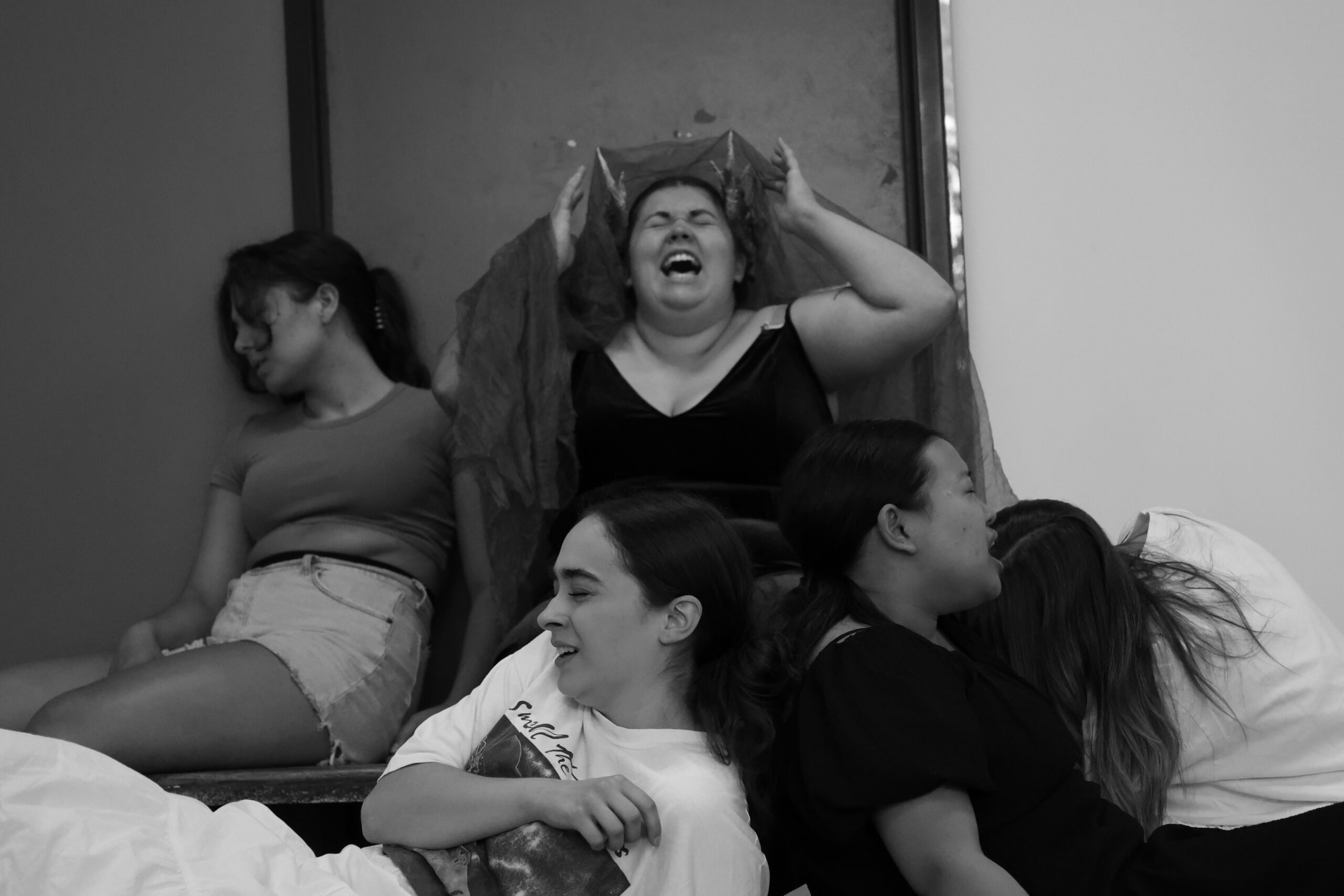
The feelings of an audience are important to tell a horror story. They must feel unease at the right moments, excited at others, and a sense of catharsis. While the audience need not agree with the protagonist, they still feel a cathartic relief at watching Carrie burn the town or when Maxine drives away, killing Pearl. In the same way that they feel pain when Jennifer is killed after she spent the last hour terrorising people, including those who showed her care and empathy. Chozik shares that while she was looking through names of who bought tickets, they noticed that the majority of them read as fem. This is not a show about feminism, Chozik clarifies, “It’s not trying to teach a man how to be a feminist, but it is meant to give women and fems in the audience a feeling of ‘yeah, that fucking happens to me all the time.’”
Just as it was important to the creators to not make this a show about feminism, it’s not a show about queerness. These characters just are women. These characters just are queer. People are generally tired about their struggles being the center of all representation. They don’t want another story of overcoming something. A love story overcoming racism, overcoming homophobia, overcoming sexism. People want representation where they can just exist and have their story be told. This is solidified in reactions to the end of the show.
Richer shares that male and female readers tend to have drastically different reactions to the final scene. Male audience members would fall into the simplistic takeaway that this is just a story about a cult. She also shares that almost every person with lived experience as a man who has heard the ending told her to change it because it didn’t make sense. However, everyone with lived experience as a woman agrees with the ending. It makes sense to them.“I’m really interested to see how audiences are gonna react when it’s staged,” she shares.
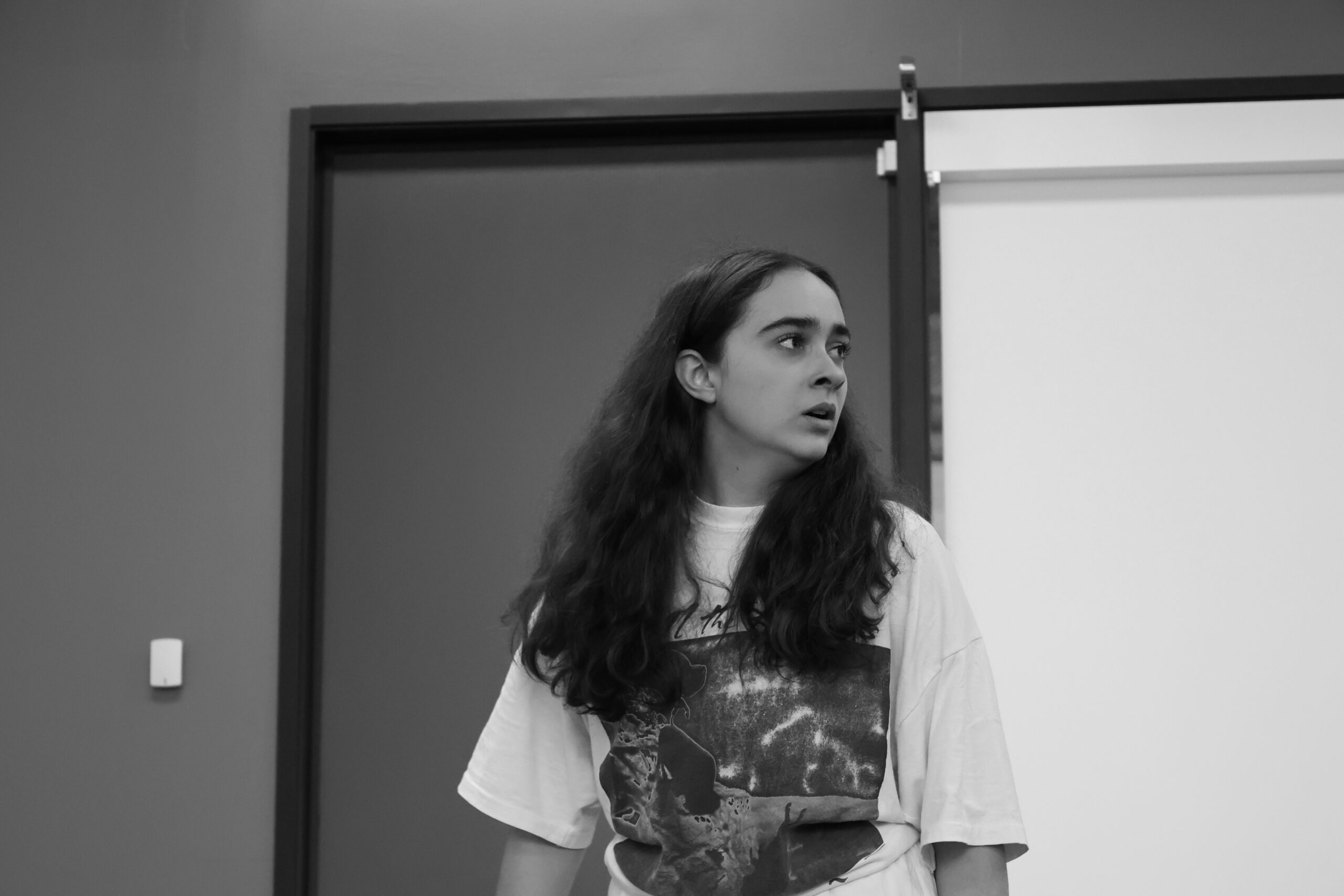
As the first show, When You Close Your Eyes is inevitably going to set the tone for Makeshift Company. The point of Makeshift, according to Chozik, is to shine a light on original, Canadian musicals. The main goal with the Spark Project that brought When You Close Your Eyes was to give opportunities to new creators. In October of 2023, they put out a call asking for pitches. “I was like, listen, Jessa, you were the one who I trust the most to do this as the first try,” Chozik shares. They continue by telling us that “People want musicals, and a bunch of recent indie musicals have sold out in Toronto and have had really successful runs.”
Something that Canada lacks in terms of theatre is accessibility. The reason many can’t attend musicals is because it’s hundreds of dollars for a night out resulting in people opting for cheaper means of entertainment. However, theatre is undeniably incomparable to a movie where you watch someone through a screen and maybe stream it at home. Richer describes the intimacy of being able to physically feel the actor and them standing in front of the audience, representing something that they feel.
“I think [a live performance] is truly incomparable and people are hungry for it in Toronto.”
When You Close Your Eyes strives to give a feeling of relatability and being seen. The impact that this show could have on young people who may not normally see musicals, especially queer and fem people, is of fundamental importance to the team behind the show. People who are often cast as side-stories or only given a single story to tell are being placed front and center. Characters often cast aside are allowed to make horrible decisions or be in love.
After being stuck with her parents and a cat who constantly peed on the bed, Richer created something that she and Chozik are ready to present to audiences. When You Close Your Eyes is running from June 12th-17th.
Note to audience: When You Close Your Eyes contains Depictions of Violence, Strong or Offensive Language, Sexual Content, Depictions of Self-Harm, Dark/Horror Content. Not Suitable for Children Under the Age of 12.

